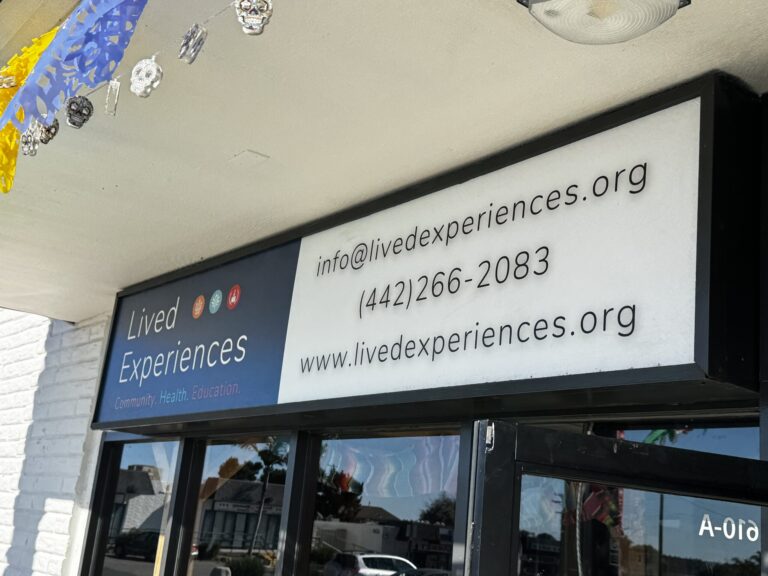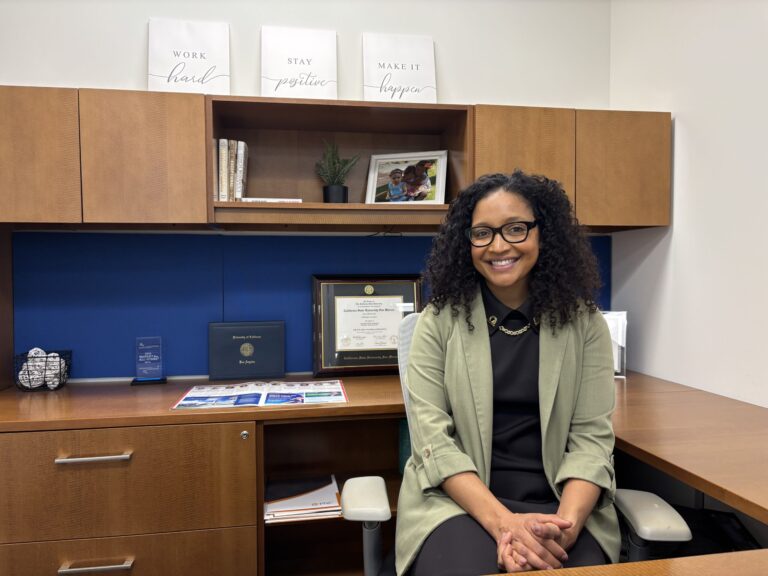By Irvis Orozco and Melanie Slone
Have you been saving and building your credit to buy a home, the most significant investment a family can make, but are confused about what to do next?
According to a 2022 NAREB report, Latino homeownership stands at 48.4%, significantly lower than the 74.5% rate for Whites. Some of this difference is due to a lack of information and an abundance of myths.
“Those that are holding off are doing so because they don’t believe they can own because of the myths that are in the marketplace,” says Ana Padilla, Vice President, Senior Business Growth Strategy Consultant Wells Fargo Home Lending, Diverse Segments, San Diego and Riverside, CA, and Las Vegas, NV. “These are all common types of myths preventing people from believing they can buy a home, when in fact, they may be ready for homeownership and may qualify for a home loan.”
For example, many people believe they need at least 20% down payment. But Padilla explains that “some financing programs allow qualified homebuyers to put down as little as 3%, and in some cases, no down payment is required.”
Putting more down can reduce the monthly payments, which can free up dollars for other parts of your budget, including savings, she says.
Another myth revolves around credit history. “You don’t need perfect credit,” says Padilla. “A borrower’s credit history may impact the interest rate or the amount of money that can be borrowed in relation to income. However, if your credit score isn’t perfect, that doesn’t mean you won’t get approved.”
There are financing programs for a range of credit scores or even for people with little credit history. “The important thing to remember is that a lender looks at your entire financial picture, not just credit score for loan approval.”
Some people are afraid that the mortgage process is long and complicated, but Padilla says, “having the right people and tools by your side can make it feel much more manageable.” A home mortgage consultant can help you by walking you through each step of the process and answering any questions you may have; providing helpful resources, including videos that explain key concepts in detail; and giving you a process checklist, so you know what to expect at each step and what you will be asked to provide.
Esmeralda Ponce, CEO and President of Ponce Real Estate Team Ponce, highlights the importance of language and cultural understanding in the home-buying process. “Working with a Latina realtor allows you to ask questions in your language,” she says.

Understanding the Costs
Another point to consider is the entire financial panorama around home buying. “You need to look beyond principal and interest to understand what you need to budget for taxes and insurance,” says Padilla.
Zillow Senior Economist Orphe Divounguy emphasizes, “Buyers should be aware of common closing costs, including fees for loans, appraisals, title checks, and inspections. It’s crucial to budget for these expenses early and review the breakdown provided in your Loan Estimate.”
Buyers should review the cost details from their lender and consider negotiating with the seller or exploring down payment assistance programs. Closing costs can add 2–5% to the purchase price of a home. Buyers should review all closing documents thoroughly and seek clarification on any unfamiliar fees, says Divounguy.
Finally, you won’t want to stop your savings plans once you’ve bought the house, says Padilla. “You’ll need a rainy-day fund for when dishwasher leaks or your furnace is on its last leg. If you’re disciplined, your rainy-day fund can make those unexpected expenses less painful.”
Assistance to Buy a Home
Many Latinos missed out on government assistance during the 2010 housing crisis and lost their homes. It is crucial to understand how government programs work to avoid similar issues in the future.
The NACA Mortgage Program is especially valuable for Latinos. “It eliminates down payments, closing costs, fees, and mortgage insurance, and provides a below-market fixed rate, making homeownership more accessible,” says Ashley Garner, a seasoned realtor and Program Director for the CLTRE Keeper Homeownership Program in Sacramento.
Garner also mentions CalHFA’s Shared Equity Program, which “offers 20% down payment assistance, which you must repay if you sell the house.”
Divounguy notes that “Zillow’s down payment assistance tool, available on its For-Sale listings, helps buyers find local programs.”
Wells Fargo announced a new initiative to advance racial equity in homeownership across the nation, says Padilla. Some of the initiatives in the San Diego area are:
- Our Dream.Plan.Home. Closing cost assistance program for borrowers at 80% or below the median income.
- $10,000 Homebuyer AccessSM grants that will be applied toward the down payment for eligible homebuyers who currently live in or are purchasing homes in certain underserved communities, including the San Diego area.
- https://wellsfargo.com/homegrant
- 866-327-6414
DACA Purchasers
Ponce points out that “people with DACA qualify for traditional home loans, and the undocumented community can apply with an ITIN to certain banks and programs.”
She explains that “individuals with DACA status are fully qualified to buy a home and go through the same process as those with a Social Security number.” She adds that DACA recipients can access programs such as FHA loans, noting, “They are able to get FHA loans at normal competitive rates and qualify for a lower 3.5% down payment.”
She acknowledges that those without DACA face additional hurdles. “It’s a little bit tough, but it’s a reality they have to navigate,” she says. Despite these challenges, she highlights, “over 100 successful stories of people buying homes with ITINs and Dreamers”.
These financial institutions make loans to people with ITINs, including members of the undocumented community.
Alterra Bank
https://www.goalterra.com/learn?view=loan-products#
Amalgamated Bank
800-662-0860
Based in New York, but serves nationwide, including California.
Comunidad Latina Federal Credit Union
818-361-8282
San Fernando, CA
First National Bank of America
First Priority Bank
Griffin Funding
(855) 651-2871
San Diego, CA
Keys Federal Credit Union
Latino Community Credit Union
919-595-1800
Based in North Carolina, with partnerships in California, including an office in Anaheim.
Mission Asset Fund
888-274-4808
Headquarters: San Francisco, CA
Invisible Barriers: Navigating Financial Services with an ITIN
Self Help Credit Union
https://www.self-help.org/es/quienes-somos
Self-Help Federal Credit Union
877-369-2828
Oakland, CA




